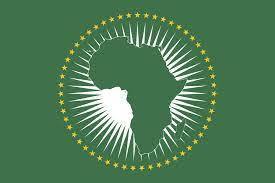“SDGs: Why UN, governments should infuse community development strategy in implementation”

Muhammad Bello Shitu, a professor of community development and innovation diffusion, is the Africa regional director and global vice president of the Scotland-based International Association for Community Development.
In this interview, he argues that community development approach has great potentials for institutionalizing social justice in the governance process
By Adam Alqali
IACD’s vision is to promote sustainable community development for global justice; how far have you gone in attaining that vision?
The IACD vision is dynamic, enduring and long lasting hence its attainment a possibility at each point in the life of communities, globally.
IACD have begun some modest attempts to achieve the vision through its activities. Recently, IACD organised a roundtable as a side event on SDGs and Community Development, CD, during a high-level meeting of the UN in New York, where we reiterated the position that without community development, there will be no sustainable development.
This re-echoes the need for national governments and UN agencies to infuse the community development strategy in the implementation of the 2030 Sustainable Development Goals. Secondly, IACD has always championed community empowerment initiatives as an inclusive strategy in all sectors to enhance peace, human rights, equality and social justice.
IACD’s motto is “think globally, act locally”, what message does the motto carries?
The message goes to all our members and partners but specifically to the diverse communities in different regions of the world. The central theme of the motto is the value of community learning as a facilitator of community change and progress. In this regard, we identify and build our strength just like we take advantages of our opportunities so as to be empowered to make a lot of differences in our lives as community members.
More specifically though, is the issue of bringing global perspectives and best practices to local contexts in a learning and sharing framework. The global lens for instance help shape standards in community development education, research, practice and policy analysis within the local contexts but focused on the vision of global justice.
The IACD, as a non-profit and an NGO, is committed to building a global network of people and organisations working toward social justice through a community development approach. As one of its regional directors in sub Saharan Africa, how much do you think community development approach could help Africa achieve social justice?
I once said that if African states are to develop we must learn from the vision of the International Association for Community Development, IACD, which is promoting global justice through sustainable community development. My thought is anchored on the fact that the CD approach has great potentials for institutionalizing social justice in the governance process.
In order for this to be realizable; African states should imbibe the ideals of Asset Based Community Development, ABCD, which entails harnessing effectively our collective capacities (strengths, resources, talents, skills, social capital etc) in promoting the common good and building just nations.
What role would community-driven development play in Africa’s sustainable development including the realization of the UN’s global goals for Africa?
Community-Driven Development, CDD, represents a radical paradigm shift away from the top-down approaches often imposed by leaders in African countries. CDD is participatory and inclusive; this means an opportunity to reflect on and use community capitals; a focus on community aspirations and yearnings; and a possibility for building community consensus and leadership.
On Sustainable Development Goals, SDGs, the CDD shall be a tool for drastically reducing illiteracy, poverty, poor health status, inequality and vulnerability on the continent. The expectations, however, are that, African countries and regional and sub-regional groups like AU and ECOWAS must be honest with the implementation of the SDGs especially entrenching the culture of accountability and transparency in the process.
As one of IACD’s 3 global vice presidents, how do you hope to use the opportunity to promote community-driven development across the African continent?
Thank you for this question. From the position of Africa regional director, I have been added the additional responsibility of IACD vice president; so a wonderful opportunity to continue the good work of pursuing the IACD vision to its logical realization. My main focus is to build and strengthen partnerships at all levels: within communities, between communities, between organisations, between regions and between global north and global south.
Talking about global partnerships resonates when we work towards achieving the IACD motto which I explained earlier. It is in this regard that we negotiated for the 2018 IACD International Conference to be held in Africa, and Nigeria has been given the hosting right in principle at the last July 2016 board meeting held in Minneapolis, Minnesota, USA. Following up from that therefore, is for me to work towards eliciting the support and cooperation of community development academics, practitioners, volunteers, media and policy makers across Africa.
In specific terms, I will advocate for CD values, principles and approaches in the policy and programmes by state and non-state actors in the continent. Taking a cue from the giant strides of the newly established South African Community Development Association, I will work assiduously to pursue the development of CD policy and qualifications framework in all African countries.
Through this effort we will continue with the networking, learning and exchange between CD practitioners, educators, researchers, volunteers and policy makers and analysts. I will use this medium to call on all those who value community to support us towards hosting the 2018 IACD International conference in Nigeria.












